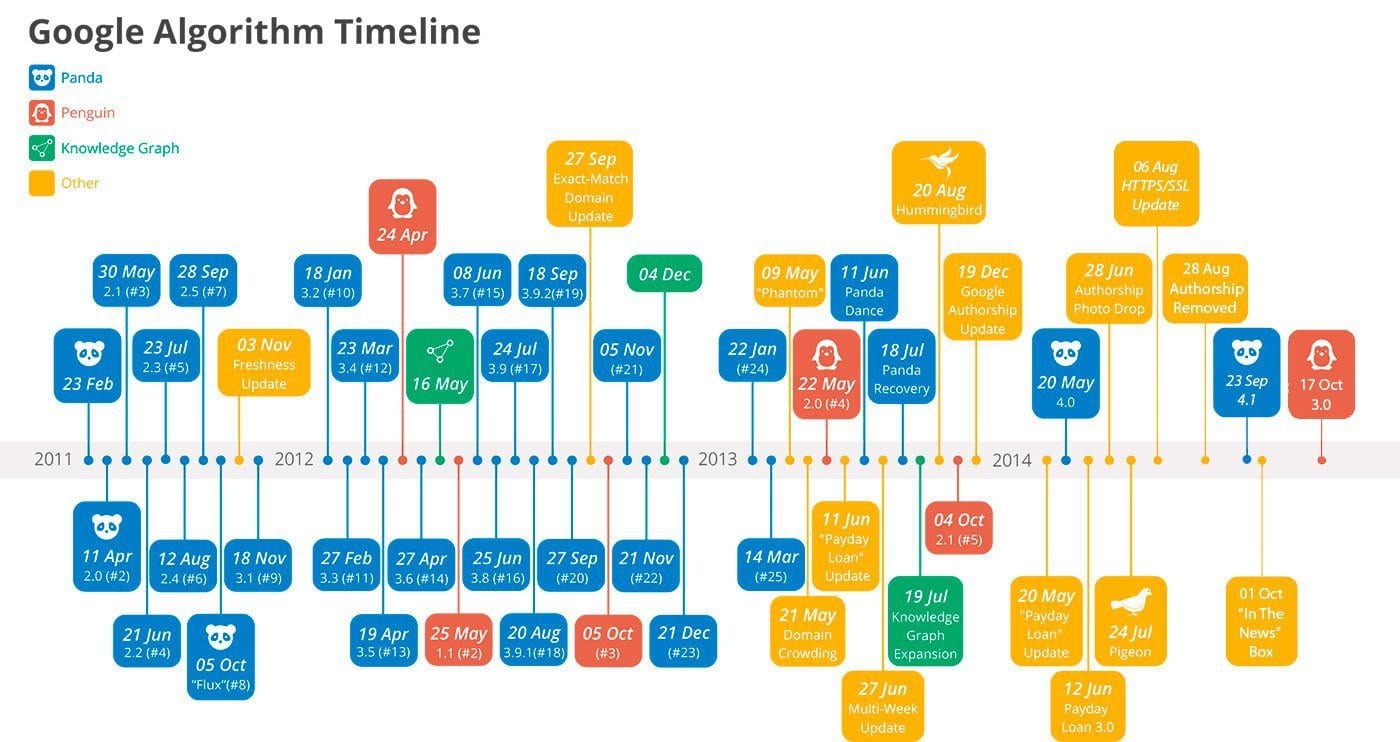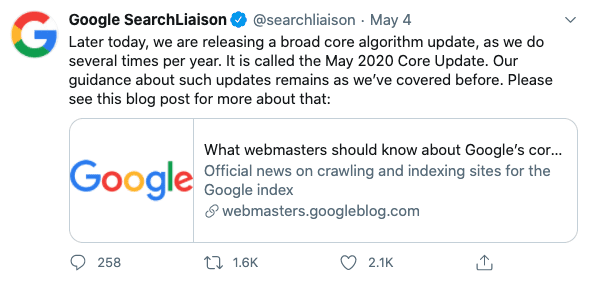How Search Works – A Guide to Google’s Algorithm
SEO, aka Search Engine Optimization, is the methodology to make the website search engine friendly and rank it on SERP for organic traffic. But before working on SEO for your website, you need to understand how the search engine works or what’s the Google algorithms for SEO.
Without any doubt, there are billions of webpages to date, and of course, 1000’s of the website matches yours. So, how to do SEO on such a condition? How will you rank your website on the SERP?
How do Search Engines work?
Search Engine ranks the webpages with the following process:
Crawling
It involves discovering the webpages with the help of crawlers, also known as search engine spider bots. The robot meta tags guide whether the bot should crawl the webpage or not. Spider bot crawls all the contents regardless of the format, such as image, pdf, video, etc. and the contents are discovered through the links.
Indexing
After crawling the webpages, the search engine will store it in an organized way.
To check whether your site is indexed or not, head over to Google and type “site:yourdomain.com” into the search bar. If you find out your website on the result, it means your website is indexed and ready for ranking. If not, you are blocking the robot for crawling the website.
Ranking
The search engine ranks a page according to the relevancy of searcher’s queries. The more relevant is the content, the higher chance of getting your website at the top of the result page.
There are many factors involving in the ranking of the webpages. We will discuss this later in the article.
How do Google Search Algorithms work?
Without the algorithm, it’s nearly impossible to sort out the relevant result to the search queries performed by the searchers. No one knows the actual search algorithms.

However, the major factors involved in the search algorithms are discussed below:
Query
In the very first process, Google algorithms analyze the query. The query can be a single keyword or might contain more than 1 keyword. Then the search engine tries to understand the intent behind the query and interpret it through its algorithm software. It also uses the synonyms system to match the query.
If the query keyword is included on your webpage, then your website is ready to get on the result page. But wait!!! It’s not only the factor to rank your website on the top of the result page.
Webpages Relevancy
Google algorithms analyze the website’s content. Many people try to make fraud with the keywords used in the search queries. But now they can’t.
Rather than searching for keywords on the webpage, now the search engine use aggregated and anonymized interaction data for the relevancy of the queries. Google search uses machine-learned systems for estimating the relevancy of the website.
The Google search won’t rank the webpage that uses the same keyword hundred of times. Rather, it will go beyond the searched keyword, such as it searches for details about the keyword on the page like image, synonyms, related words, etc.
You can enhance the relevancy of the website by including the keywords, search queries on the title tag, meta description, Image Alt tag, Slug, headings, etc.
Quality of Content
Quality of the content is still the king for ranking the website on the SERP. Content’s quality doesn’t mean a longer content, using keywords on the important places, detailed information, etc. You can write the quality content having detailed information, but for Google, it doesn’t meet the quality until it has the relevancy, authorities, good page rank, etc.
Beyond the content, the other factors that determine the quality of content are as follows:
- Backlinks: Websites linking to your webpage for the query relevant to your webpage are called backlinks. The backlinks plays important role in ranking the webpage.
- PageRank: There are many webpages that value the same queries but all the webpage can’t hold the first rank. So, PageRank comes into play. It is the process of ranking the website based on other prominent websites link to the webpage.
- Spam-Backlinks: Just creating the backlink is not enough to rank the website. Google search engine analyzes the type of backlink coming from. If you are getting the backlink from the spam domain, definitely it will harm your website ranking. Generally, the website has lots of links, inappropriate content, redirections, lots of ads which will redirect the visitor to inappropriate contents are known as spam sites. The backlinks from spam sites are spam-backlinks. But getting a backlink is not on your hand. If you have spam backlink, use Google disavow tool.
Usability of Webpages
Webpages usability means how the user interacts with the webpage. It is also called as a technical SEO of the website. The Search engine takes the technical aspect of the website into account for ranking the website for more keywords and queries.
The following factors determine the usability of webpages:
- The loading time of the website
- The design of the website
- Responsiveness of website (how the website loads on a different device)
- SSL of the website
- Bounce rate and time on page
If the website is already ranked and the visitors prefer to visit another website instead of yours, then it’s obvious that your website will fail to remain at that rank. Might be visitors go to another website due to inappropriate design, loading time or outdated content, etc. Make sure they spend more time on your website to increase the rank of the website. You can analyze the user’s interaction using Google Analytics.

Final Thought
Most people think that getting a higher number of backlinks will improve the ranking of the website. The answer is both Yes and No. The quality of the backlinks matter. Before getting the backlink, you must know the DA, PA of the website.
Technical aspects of the website are one-time optimization but must be done properly to reduce the bounce rate and increase the time on page. Make sure the design of your website provides easy navigation for the visitors and doesn’t redirect to other unnecessary page or ads.









